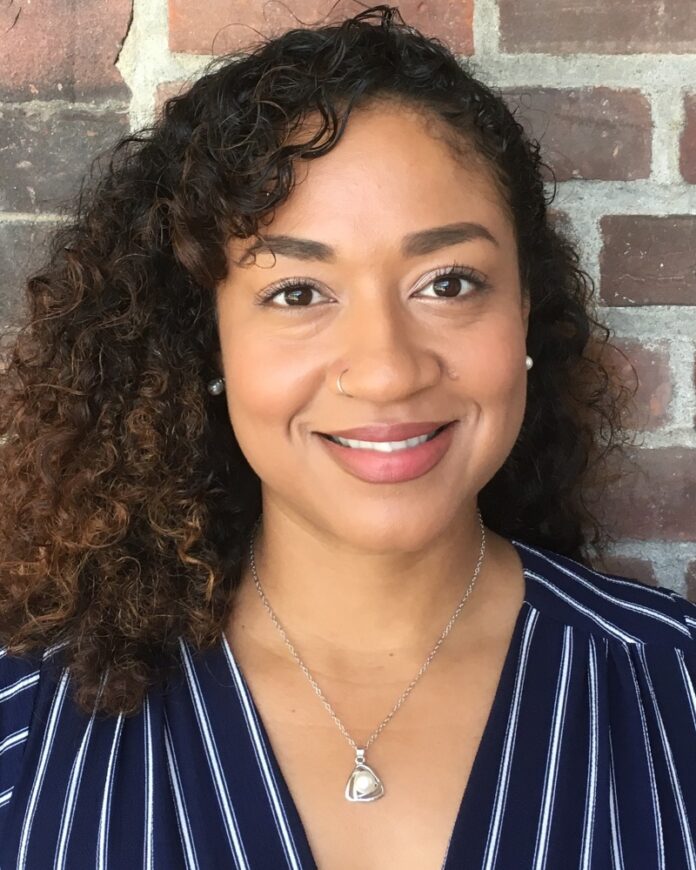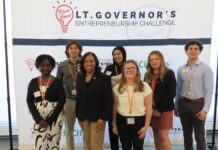Jessica Vega was recently named the Pawtucket/Central Falls program director for Social Enterprise Greenhouse, a Providence-based nonprofit that supports entrepreneurs and startup businesses deemed to have some social or environmental value.
Social Enterprise Greenhouse created Vega’s position to lead the organization’s efforts to focus on the Pawtucket and Central Falls area.
Her main responsibility is to develop and implement programming for entrepreneurs in those communities, including helping them receive financial assistance and other services.
She holds a bachelor’s degree in psychology from Rhode Island College and a master’s degree in community development from Roger Williams University.
PBN: What interested you in taking this job?
VEGA: The term entrepreneur didn’t resonate with me until I participated in the New Leaders Council Fellowship program last year. The first workshop was all about seeing yourself as an entrepreneur; as an inventor of your own life and creator of your brand.
It was an “aha” moment for me. Up until then, in my mind the term [entrepreneur] was reserved for describing white men in Silicon Valley tech companies, not a curly-haired Latina from Central Falls. The workshop reshaped how I thought about myself and the lack of representation in what it means to be an entrepreneur and who gets to call themselves that.
Seeing the job description that Social Enterprise Greenhouse posted for a Pawtucket/Central Falls program director brought it all full circle because the position focuses on equity and expanding opportunities in those communities.
Although I have no formal training in the business world, I have a decade of experience cultivating relationships and working with my community to address their needs. I feel privileged to be able to merge my experience in human services and community development and engage the people of Central Falls and Pawtucket.
My goal has been to take the bottom-up approach and work alongside the community to build out programs that they would like to see. However, this job is more than just creating programs. It’s about having the people in those communities, especially people of color, see themselves as an entrepreneur. That, to me, is powerful.
PBN: How does SEG’s Loan Fund work?
VEGA: The SEG Loan Fund provides small loans between $5,000 and $25,000 to social ventures that have customers and are generating revenue. Although we tend to lend to ventures that have participated in our community and programming, it is not a requirement.
Our fund is managed by a group of volunteer expert financial professionals. They not only evaluate applicants and conduct due diligence but also work in teams of two to provide loan applicants with the technical assistance they need as they go through the application process and throughout the life of the loan. We often hear that this business advice and coaching is equally as or more valuable than the loan itself.
PBN: Aside from those loans, what other financial matters could you help entrepreneurs with?
VEGA: Developing and executing effective financial systems and understanding financial projections tend to be among the greatest challenges that startup entrepreneurs face.
We therefore are committed to ensuring that we offer training, advising and coaching opportunities that meet entrepreneurs where they are. For example, we are launching a new program in collaboration with HarborOne [Bank] that focuses on personal financial literacy for owners of small businesses. A key first step when starting a business is to understand your own finances and how this may impact your business.
We also offer financial trainings within our incubator and accelerator programs. In addition, we hold one-on-one financial office hours that enable entrepreneurs and business owners to get the pro bono financial assistance needed to help launch and grow businesses.
To help entrepreneurs with financial challenges, you have to be well-versed in the communities you are working with. For me, this means having conversations with the business-development officials in both cities to understand what resources are readily available. However, many people aren’t aware of them or just don’t know how to take the next step.
Our plan at SEG is to collaborate with the cities on getting this information out to people. Then we can start building a pipeline and a directory of services. We want to remove the confusion and get entrepreneurs on a path where they can take advantage of financial opportunities in their area.
PBN: What do the nonfinancial elements of your job involve?
VEGA: My colleagues and I have had conversations in both communities with local business owners and community-based organizations. There’s hunger to move away from the theoretical and gain access to practical skills. The best way to do that is connecting people to experts in the topics they’re interested in learning more about.
One of the great things about SEG is our large existing network of volunteer advisers who have a variety of strengths and expertise, whether that’s in business planning, sales and marketing, managing a team, providing legal counsel, and the like. SEG volunteers all want to see local entrepreneurs and businesses thrive, so we will be making those productive connections for people.
As I mentioned, we’ve recently partnered with HarborOne to host their Success for Small Business workshop. We’ve worked on tailoring the curriculum to fit the needs of the community. The workshop will launch on Sept. 18 and 19 and will be hosted at Progreso Latino.
In the works for October is a workshop on management and team-building skills. Plus, in early 2020, we will be offering a business incubator that will be customized for Pawtucket and Central Falls entrepreneurs. Like our traditional SEG incubator, it will serve people who are in the early ideation stages of their business and help them to determine how to turn their ideas into action.
PBN: Why is SEG focusing on the Pawtucket/Central Falls area?
VEGA: We know that there is a significant amount of entrepreneurial talent in these communities, but at the same time many people of color have been historically shut out from resources in areas such as housing, education and business support services.
By being boots on the ground – listening, learning and co-creating programs that leverage the strengths and respond to the needs in these communities – we hope to increase access and to ultimately help create a more just and resilient economy that works for everyone.
Scott Blake is a PBN staff writer. Email him at Blake@PBN.com.













